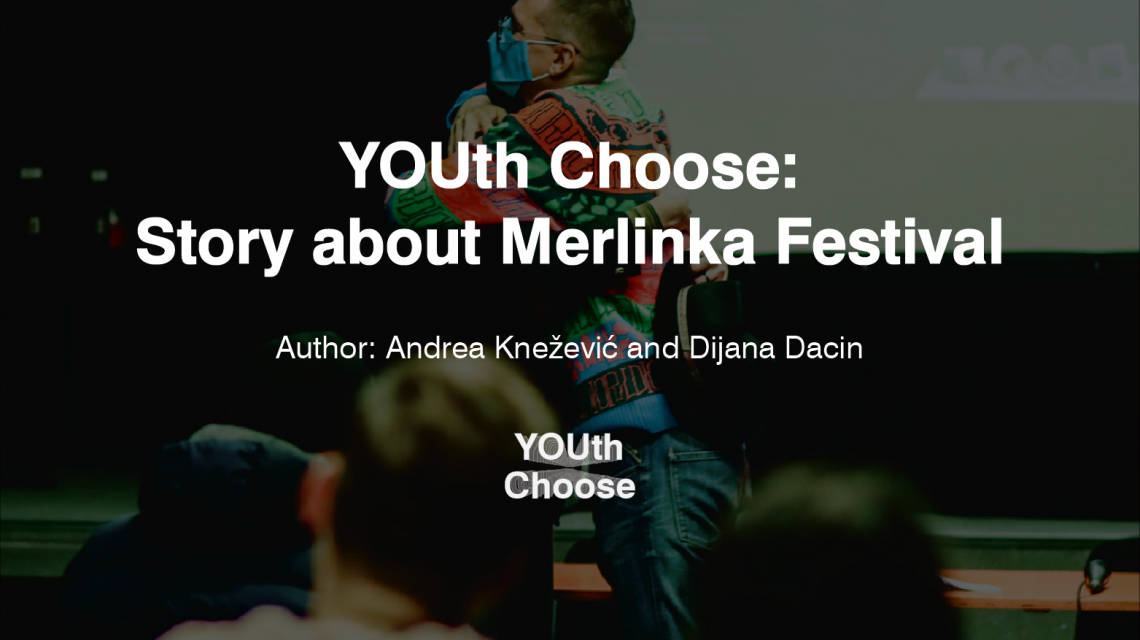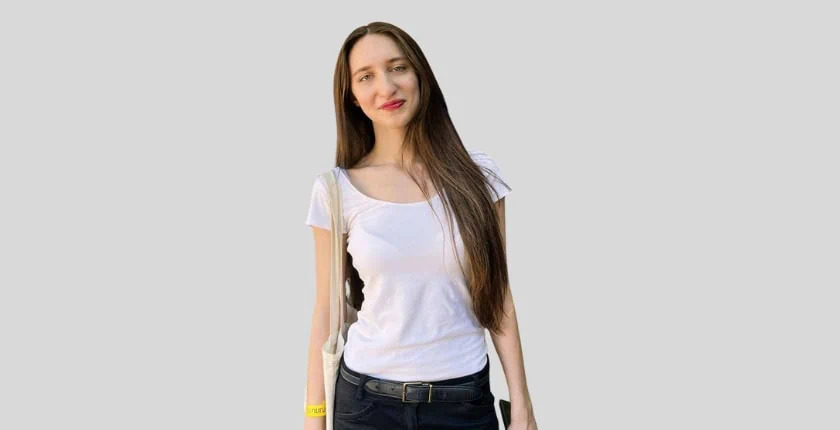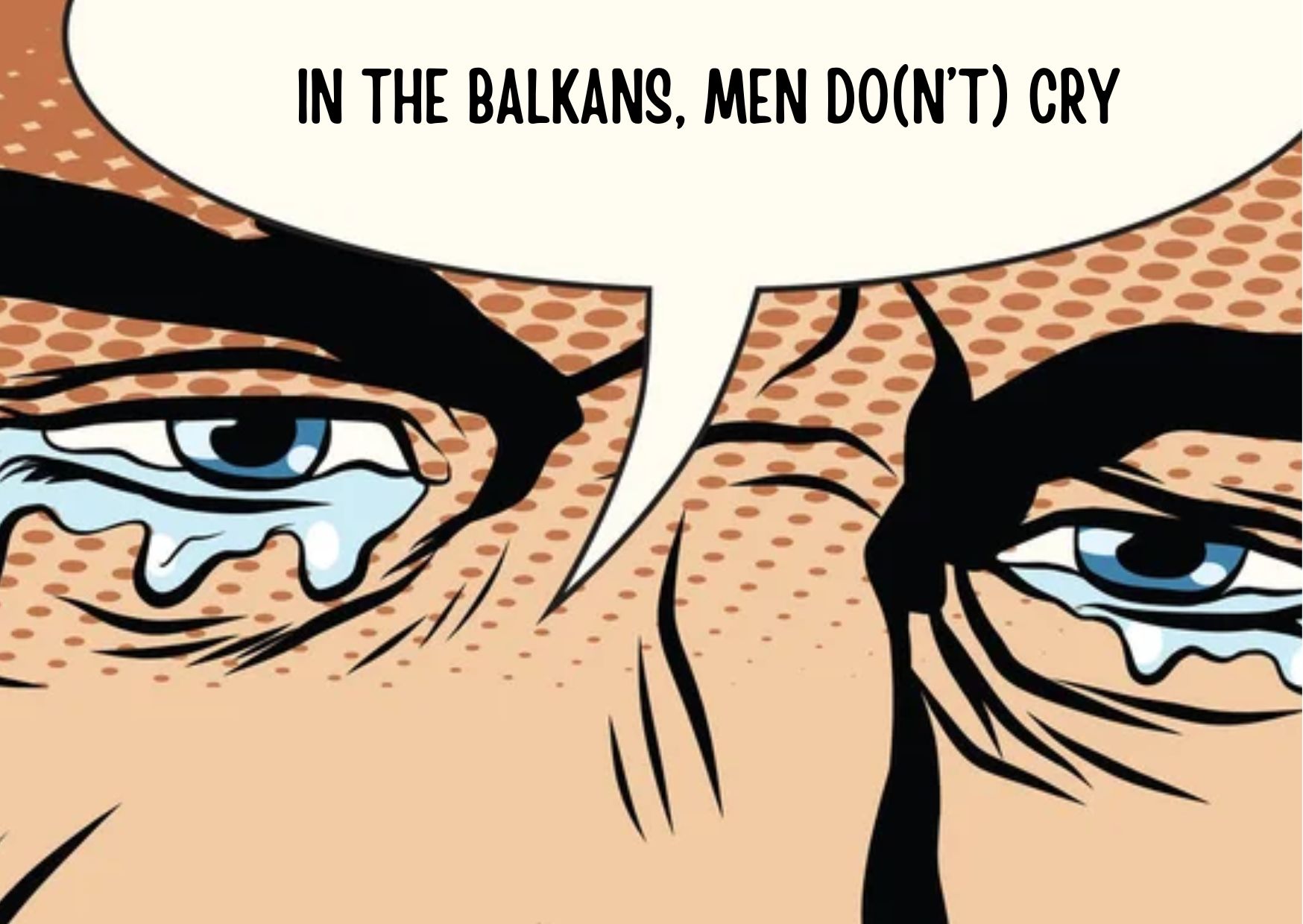2020 marked the 12th International LGBT Film Festival “Merlinka”. What does the festival symbolise and why is it important to talk about it and spread the word?
Lead: The International Queer Film Festival “Merlinka” has been held annually in Belgrade every December since 2009 and it is organized by the Gay Lesbian Info Centre (GLIC) in cooperation with the Belgrade Youth Center. It is dedicated to films dealing with gay, lesbian, bisexual, transsexual and queer topics. During the festival days, viewers get a chance to experience and watch short, documentary, feature and animated films of various different genres created by film authors, as well as film arts students from all over the world.
Every year, the festival is held under a different slogan. For example, the 2017 “Merlinka” was organized under the motto Zaljubi se zatvorenih očiju (Fall in love with closed eyes) and in 2018, the motto was Uprkos svemu (Despite all odds). With the new way of life that the world had to adjust to, the same sentence probably would’ve been suitable even this year and the motto could’ve been Despite all odds vol. 2.
However, the slogan for the 2020 “Merlinka” was Festival na rubu nervnog sloma (Festival on the verge of a nervous breakdown). Director of the festival Mr Predrag Azdejković said that it was extremely difficult this year because until the very last moment, they were unsure if the festival would even be held.
“We are used to announcing the program of the festival a month in advance, but this year we changed the schedule the day before it started. Also, some participants ended up canceling their submissions because the producers decided to move to streaming platforms or to save their film for 2021. Despite that, we had more than 80 films. As for the attendance, it was five times smaller than last year, but when we compare it with other festivals that were organized at a similar time, we can be very satisfied,” Mr Azdejković stated.
From 2009 to 2020: What has changed?
As years go by, the organizers try their best to improve the quality of the festival and move the standards set in previous years. Each year, the program gets more and more diverse. For the past eleven years, the festival has drastically changed and evolved. Azdejković stated that the first edition of the festival in 2009 faced many difficulties and was held successfully only from the third try:
“The first festival was organized without a budget, with great difficulty and only ten films, but it was successful and we were awarded the Crystal Award for the Project for young people with the best communication strategy that year. Next year, we had already increased the number of films and since then, we have had more than 50 films on the program every year, sometimes even more than 100. The festival had a gradual development and over time, we began to organize additional programs such as exhibitions, music and drag performances, opening and closing ceremonies, master classes, etc. The festival started in 2009 in a small tribune hall on the first floor of the Belgrade Youth Center and in 2020, the films were being shown in all of the halls. We have grown and we have become very serious,” Mr Azdejković explains.
The development, he says, is also reflected in the quality of the film program. For example, instead of attending the European Film Awards in 2017, the celebrated French director Robin Campillo came to the festival in 2017 to present his film “120 Beats Per Minute”, which won more than 50 awards around the world. This year, the acclaimed French film “Summer of 85” by François Ozon was shown at the Festival as well as the film “Without Anger” by Faraz Shariat, which won the Teddy Award for Best Queer Film at the Berlinale Film Festival.
Besides the standard “Merlinka” prizes in six categories, The LGBTI Equal Rights Association for Western Balkans and Turkey (ERA) also awards prizes for best documentary and best feature film which were filmed in the places where this network operates. Laura Mandić, an activist who was part of the ERA jury this year, says that they were in a very difficult position because you don’t want to miss out on anyone when you know that behind every film, there are people like you who have done a fantastic job:
“What was perhaps the crucial criterion for me is being able to feel the experience that the artist went through and the emotion they managed to show on the screen. Because of that, it is important that the festival exists and it is important how much it is recognized by the wider community as something that is a big part of our cultural scene. LGBT+ people exist in all sectors of our society, but we are often forced to be invisible, and each such event represents a kind of “coming out” of the LGBT + community within society. It is important for people to see that we are here, we exist, we work and create and to try to understand our experiences and our lives, presented through art,” he emphasizes.
“Merlinka” is the only queer film festival that is organized in several places so, besides Belgrade, it visits some other parts of Western Balkan, including Novi Sad (Serbia), Sarajevo, Tuzla (Bosnia and Herzegovina) and Podgorica (Montenegro). Mr Azdejković says that the festival in other cities primarily depends on the local organizations and that they are always ready to offer the program:
“The Merlinka Festival in Sarajevo has been held since 2013 and it has become a serious city event that keeps on growing each year and we are very pleased with that cooperation with the Sarajevo Open Center. Apart from the Merlinka festival, we also started to do theater and film production, and so far we have produced several plays, two short films, a documentary, an animated film etc,” adds Mr Azdejković.
He stated that after all, what was missed the most this year was the festival atmosphere. It was not cheerful, there was no red carpet, no socializing, no parties, no guests from abroad. Everyone was wearing masks and as a result of that, no emotions could’ve been seen on people’s faces. Everything was under the shadow of the pandemic, and the festival was no different in that sense.
Who was Merlinka?
Vjeran Miladinović was born in 1958 in Zagreb, Croatia. Their difficult childhood and life caused them to move a lot and they ultimately settled down in Belgrade, Serbia. In a few words, Vjeran can be defined as an authentic human being, a person who managed to stay true to themselves and dared to be original, which was rare in the time they grew up in.
About thirty years later, Merlinka was born and labeled as the first trans person in Yugoslavia, an actress best known for the role in the Teddy award winning film “Marble Ass” directed by Želimir Žilnik.
In an interview from 1995, Merlinka was asked why they were trans. The answer was: “Being different – I have a right to that. The differences don’t matter. Actually, they are necessary. Imagine if we all had the same hair, house, car, if we all dressed up the same, it would be terribly boring.”
Merlinka was killed in 2003. So far, no one has been held accountable.
But today, the name keeps on living. Through “Merlinka”, people can learn a lot about different societies and the state of LGBT+ rights in different places. The whole point of it is to bring a new perspective into problems that exist, inform about the lives of members of the LGBT population and bring solutions to those problems.

Authors: Andrea Knežević and Dijana Dacin
This story was produced during the three-month Program for Students of Journalism in the Western Balkans within the framework of the advocacy project “A Better Region Starts with Youth” implemented by RYCO with the support of the Federal Republic of Germany. All journalists’ work is their own and the content of any given article does not represent the opinion of RYCO, and RYCO cannot guarantee the validity and the accuracy of the information that these stories contain.









